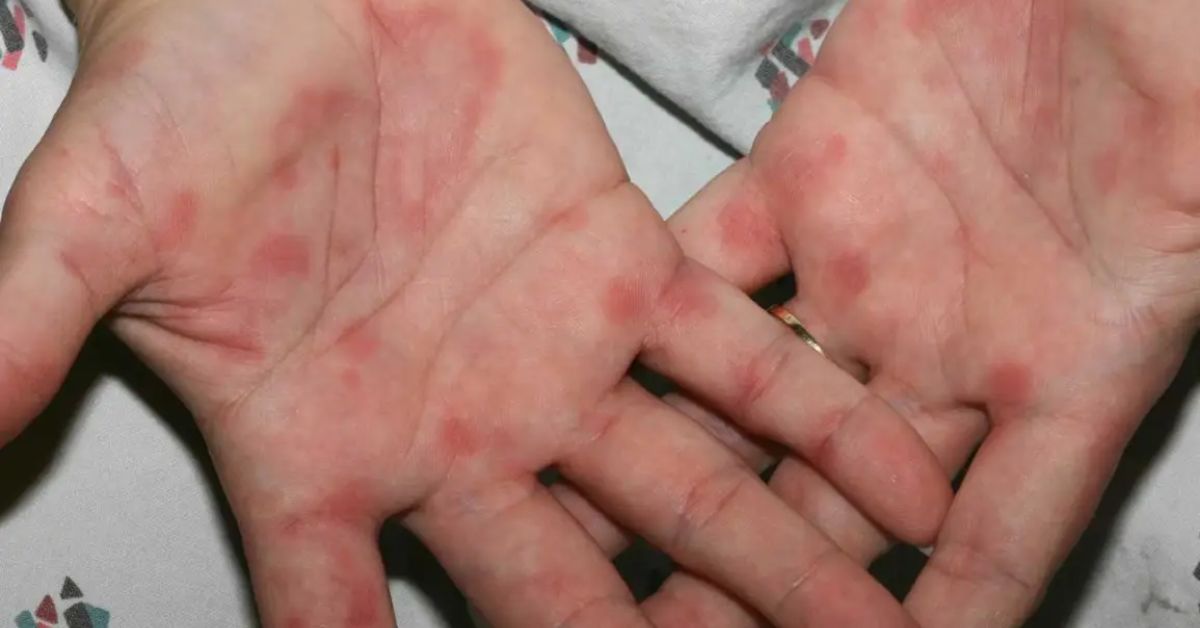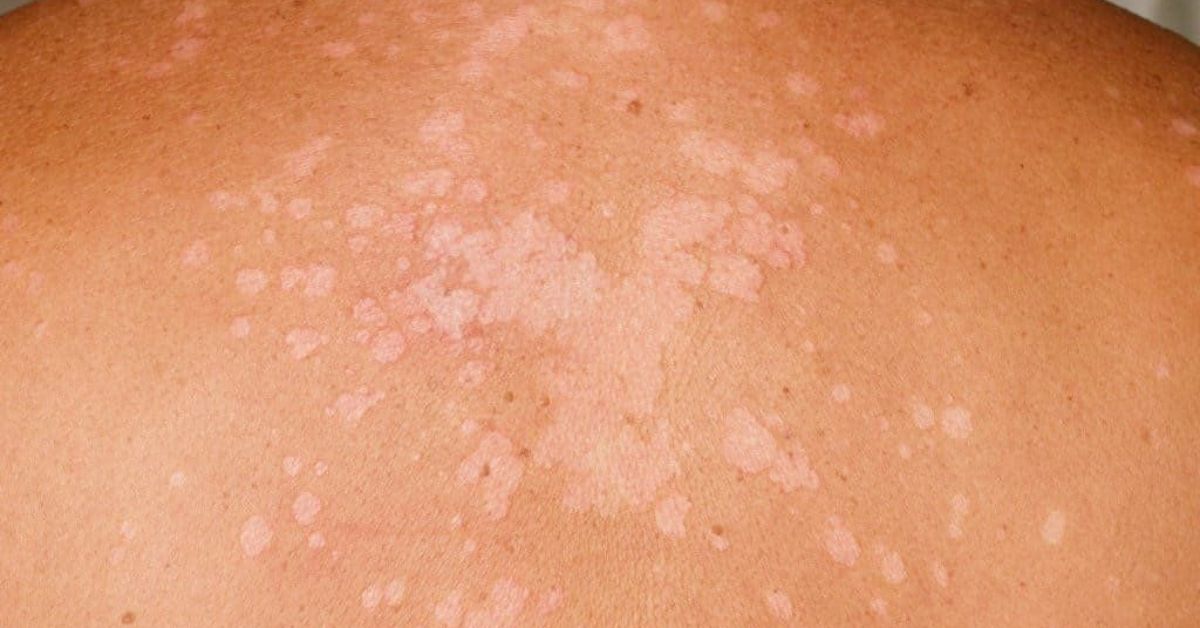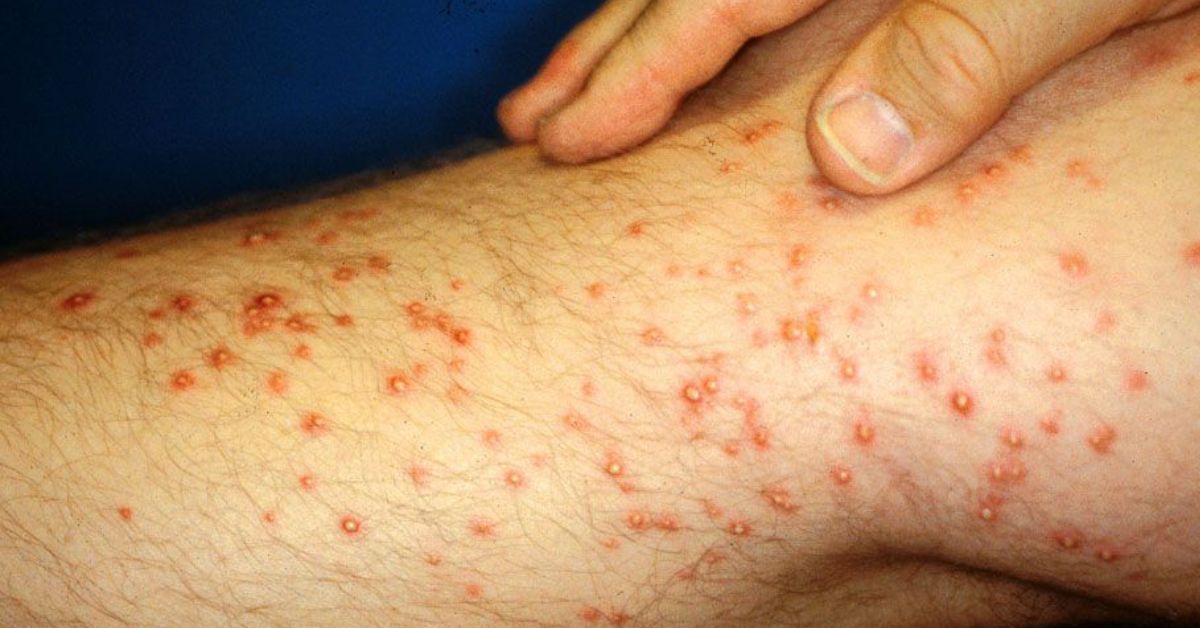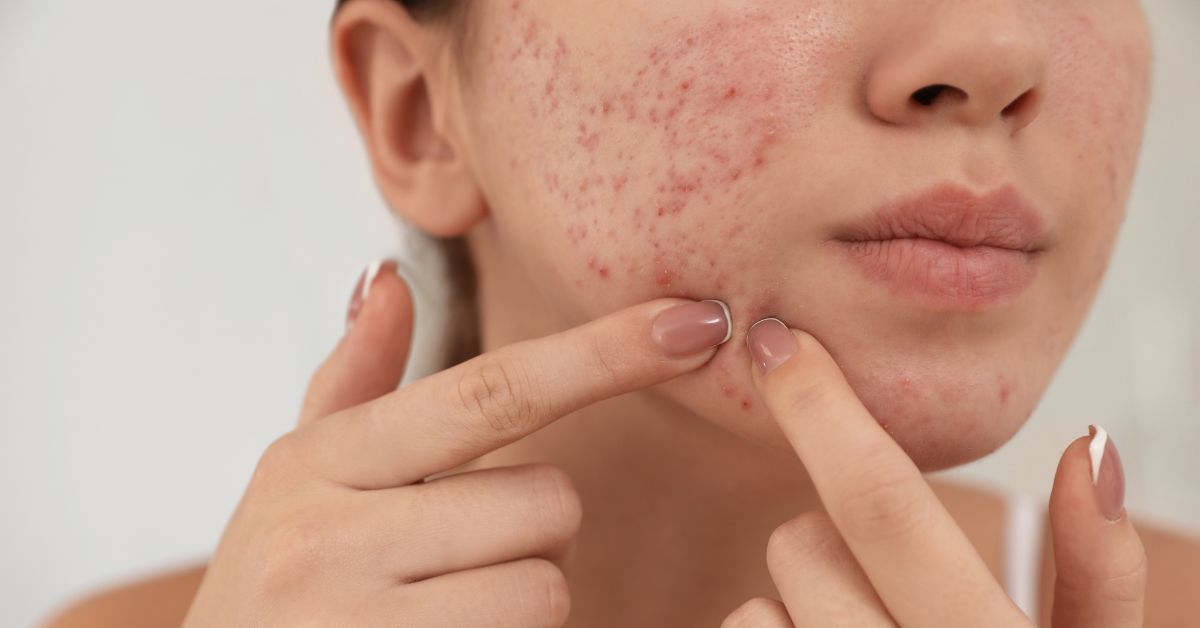The condition of itchy bumps on the skin causes significant discomfort and affects the quality of life. Understanding the causes, symptoms, and treatments can help you manage and quickly relieve persistent itching.
Symptoms of Itchy Bumps
- Severe, Persistent Itching: The itching sensation leads to continuous scratching, which exacerbates the itch.
- Bumps and Redness – itchy bumps on the skin: The itchy areas develop red, swollen bumps of varying sizes.
- Other Symptoms: The skin may be dry, flaky, develop blisters or pustules, or feel hot and painful, especially if infected. Nighttime itching can also cause sleep disturbances.
Causes of Itchy Bumps
There are many causes of itchy bumps on the skin, such as:
- Skin Conditions:
- Hives (Urticaria): An allergic reaction causing red, swollen, and intensely itchy patches that appear suddenly and may disappear quickly.
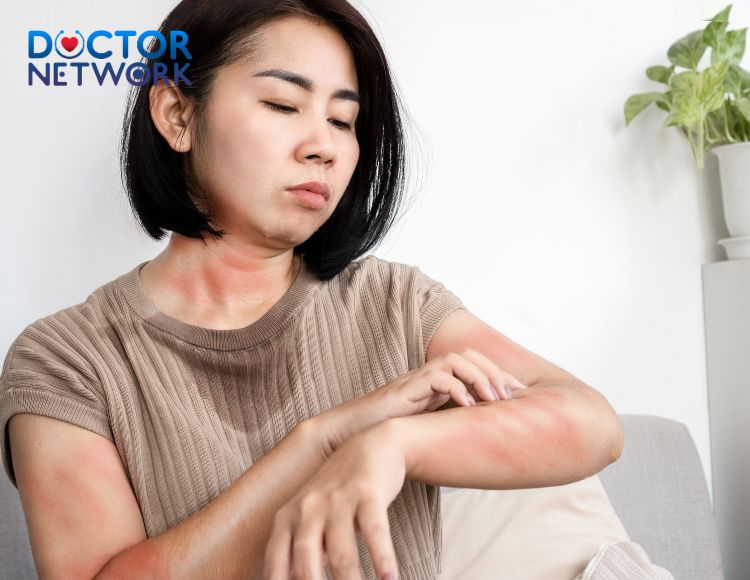
An allergic reaction causing red, swollen, and intensely itchy patches that appear suddenly and may disappear quickly
- Eczema (Atopic Dermatitis): A chronic skin condition causing severe itching, scaling, and bumps.
- Scabies: A contagious condition caused by parasitic mites, leading to intense nighttime itching and water-filled bumps.
- Fungal Infections: Skin infections caused by fungi can also result in itchy, red bumps.
- Allergies – itchy bumps on the skin: Allergies to food, medications, cosmetics, chemicals, animal fur, etc., often cause itchy bumps due to scratching.
- Infections: Bacterial or viral skin infections can lead to itching and bumps.
- Insect Bites: Bites from insects like mosquitoes and certain ants can cause itching, swelling, and red bumps.
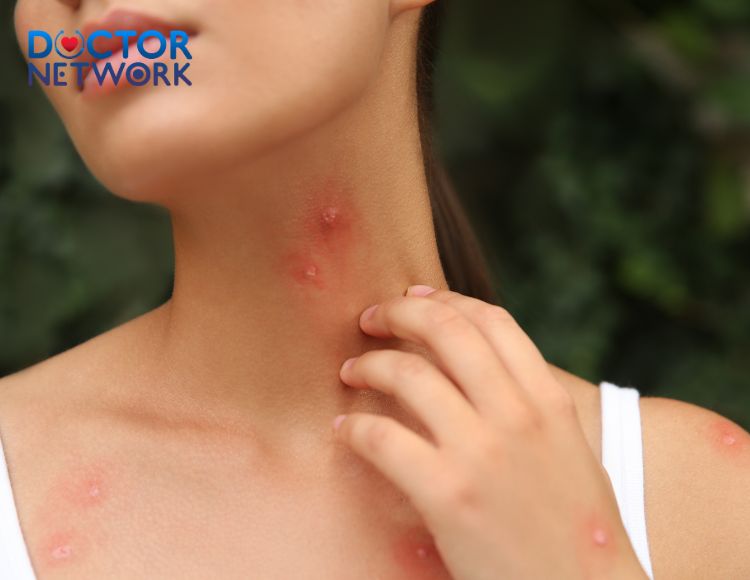
Bites from insects like mosquitoes and certain ants can cause itching, swelling, and red bumps
- Other Factors – itchy bumps on the skin: Dry weather, heat, and psychological stress can also contribute to itchy skin.
Diagnosis of Itchy Bumps on the skin
To identify the exact cause of itchy bumps on the skin, a dermatologist will:
- Take a Medical History: Including the onset and characteristics of symptoms and known allergens.
- Conduct a Clinical Examination: Carefully observing the lesions and their locations for an initial assessment.
- Perform Additional Tests (if necessary): Such as allergy tests, skin tests for fungi and parasites, and bacterial cultures.
Treatment of itchy bumps on the skin
Treatment focuses on two main aspects:
- Symptom Relief:
- Antihistamines: Help control the itch quickly.
- Topical Corticosteroids: Reduce inflammation and itching locally.
- Cool Compresses and Moisturizing: Reduce dryness and soothe the skin.
- Addressing the Underlying Cause:
- Avoiding Allergens: Prevent contact with known allergens.
- Treating Skin Conditions: Using topical or oral medications to effectively treat eczema, scabies, fungal infections, etc.
- Antibiotics: If there are signs of a bacterial infection.
Preventing Itchy Bumps
- Maintain Hygiene: Keep the body and living spaces clean to prevent scabies and fungal infections.

Keep the body and living spaces clean to prevent scabies and fungal infections
- Identify and Avoid Allergens: Recognize and avoid triggers that cause itchy bumps.
- Moisturize Regularly: Keep the skin hydrated.
- Avoid Scratching: Prevent skin damage by avoiding intense scratching.
- Healthy Lifestyle: Eat a balanced diet, get adequate sleep, and manage stress to reduce the risk of itching.
When to See a Doctor
Consult a dermatologist if you experience:
- Severe itching that does not improve.
- Rapidly spreading redness.
- Signs of infection, such as severe pain, pus, or fever.
- Ineffectiveness of home treatments.
Frequently Asked Questions about itchy bumps on the skin
- Is itchy skin contagious?
- It depends on the cause:
- Skin conditions like eczema and hives are not contagious.
- Scabies and fungal infections can spread through close contact.
- Bacterial infections may spread if there is pus on the skin.
- It depends on the cause:
- What medication should I use for itchy skin?
- Do not self-medicate without knowing the exact cause. Commonly prescribed medications include:
- Antihistamines: For itching (e.g., loratadine, cetirizine).
- Topical Corticosteroids: For local inflammation (e.g., hydrocortisone).
- Treatment for scabies or fungal infections: If these are the underlying causes.
- Do not self-medicate without knowing the exact cause. Commonly prescribed medications include:
- Is itchy skin dangerous?
- Generally not, but it can:
- Disrupt sleep and affect health and quality of life.
- Cause skin infections and scarring from scratching.
- Require long-term treatment for severe skin conditions.
- Generally not, but it can:
- What foods should I avoid if I have itchy skin?
- Avoid:
- Allergy-triggering foods: Seafood, eggs, peanuts (if allergic).
- Spicy, heavily seasoned foods: May worsen itching.
- Alcohol and stimulants: Can interfere with treatment.
- Avoid:
- How to treat itchy skin at home?
- Home remedies include:
- Cool Compresses: Provide immediate itch relief.
- Warm Baths (not too hot) with Oatmeal: Moisturize and soothe the skin.
- Loose Clothing: Wear comfortable, breathable clothes.
- Home remedies include:
Scientific References about itchy bumps on the skin
- Prevalence and Risk Factors of Chronic Itch: A Population-Based Study:
- Journal: The Journal of Allergy and Clinical Immunology
- Authors: Morgan M, et al.
- Year: 2021
- Summary: Chronic itch affects 20% of the population, with risk factors including skin diseases, allergies, and psychological stress.
- The Pathophysiology of Itch:
- Journal: Nature Reviews Neuroscience
- Authors: Yosihara Y, et al.
- Year: 2020
- Summary: Discusses neural pathways and mechanisms related to the itch sensation, highlighting the roles of histamine, neuropeptides, and itch-specific neurons in the skin.
- Atopic Dermatitis: Review of Topical Treatment Options:
- Journal: The Journal of Clinical Dermatology
- Authors: Eichenfield LM, et al.
- Year: 2020
- Summary: Reviews treatment options for atopic dermatitis, a common inflammatory skin condition causing itching and bumps, including corticosteroids, emollients, and topical calcineurin inhibitors.
- Scabies: Current Knowledge and Management:
- Journal: Clinical Dermatology
- Authors: Meinking JL, et al.
- Year: 2019
- Summary: Updates on scabies, a parasitic skin infection causing itching and bumps, covering diagnosis, treatment, and prevention.
- Urticaria: Pathogenesis and Clinical Manifestations:
- Journal: The Journal of Allergy and Clinical Immunology: In Practice
- Authors: Maradini A, et al.
- Year: 2018
- Summary: Examines the pathogenesis and clinical manifestations of urticaria, a common skin condition characterized by itchy welts (hives).
Conclusion
Itchy bumps on the skin, while not usually severe, can significantly disrupt daily life. Proper, timely treatment and preventive measures can help you effectively manage this condition.
References:
Kiểm Duyệt Nội Dung
More than 10 years of marketing communications experience in the medical and health field.
Successfully deployed marketing communication activities, content development and social networking channels for hospital partners, clinics, doctors and medical professionals across the country.
More than 6 years of experience in organizing and producing leading prestigious medical programs in Vietnam, in collaboration with Ho Chi Minh City Television (HTV). Typical programs include Nhật Ký Blouse Trắng, Bác Sĩ Nói Gì, Alo Bác Sĩ Nghe, Nhật Ký Hạnh Phúc, Vui Khỏe Cùng Con, Bác Sỹ Mẹ, v.v.
Comprehensive cooperation with hundreds of hospitals and clinics, thousands of doctors and medical experts to join hands in building a medical content and service platform on the Doctor Network application.
















